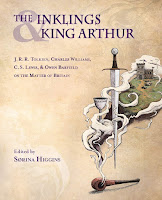As a follow-up to last week's post on the importance of poetry, I'm linking to some of my favorite poetry books.
I always say that the best poetry primer for someone who has no clue where to start is Robert Louis Stevenson's A Child's Garden of Verses. The poems are light and lyrical without being too sing-song-y. Even as an adult, I continue to delight in them and have put quite a few to memory. (I've linked to the Kindle Free version, but there are many beautifully illustrated hard copies to choose from when buying one for your personal library.) I extol the glories of one his poems in this post.
I created a list of poetry books especially for children here. A decade after I wrote that post, I discovered the lovely Sing a Song of Seasons, which for a modern book has an amazingly small amount of tripe. (I reviewed it here).
Of course, poetry must be read aloud for you to be able to appreciate its cadences so I highly recommend this audio recording of 81 Famous Poems. (Reviewed here.) Sadly, no corresponding book is available, but there is a similar book of classic poetry, Best-Loved Poems, that I reviewed here.
Finally, if you already love poetry and are ready for something a bit meatier, I highly recommend these two books of devotional poetry: Poems of Faith (Dover publications, not the Helen Steiner Rice title) and The Oxford Book of Christian Verse -1940. (Don't pay any attention to the Amazon price; I found it at a used book store for $5.) Of the two, Poems of Faith is a bit easier, but the OBCV is one of the most treasured books in my entire library.
Let me know if you've enjoyed any of these or if you have a favorite book of poetry that is not mentioned here.
Blessings,








